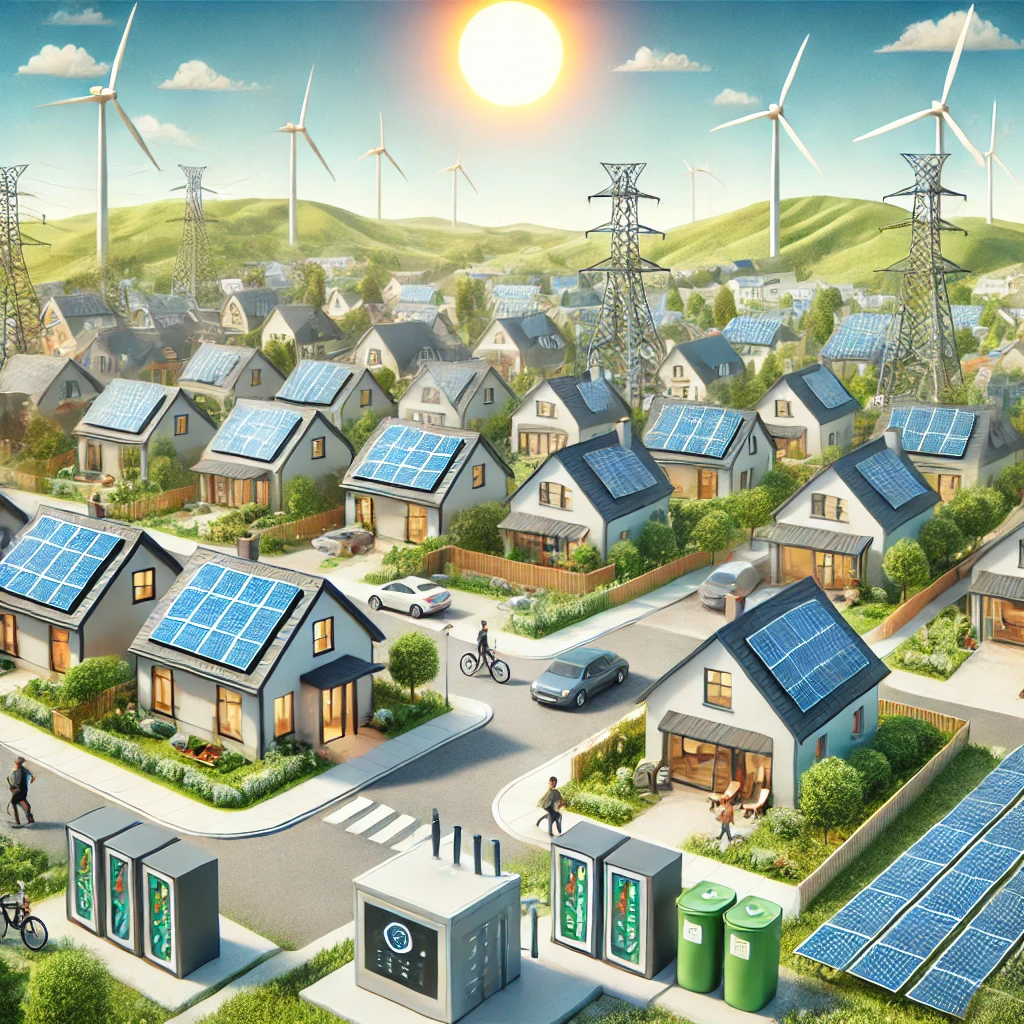
Story by Sara Carbone, CollectiveSun Content Marketing Manager
Last week, President Biden rolled out his $2 trillion American Jobs Plan, an infrastructure plan which involves policies around clean energy, new transmission and renewable energy development as well as incentives for manufacturing, jobs and workforce development. Ideas central to the plan, and of particular importance to the solar industry and renewables in general, are establishing a more resilient grid, lowering energy bills for middle class Americans, creating well-paying union jobs, and reaching 100% carbon-free electricity by 2035.
SEIA’s Abigail Ross Hopper stated that President Biden’s proposal “is a significant step in meeting our collective clean energy goals” while Myke Clark of Solar Alliance declared that it “contains key provisions that will accelerate our growth as a company and allow us to contribute to the rebuilding of the economy through clean energy project deployment.”
The plan, as Biden has presented it, is similar to an opening bid, and the next step is for it to be translated into legislative language in the House and Senate. However, Matt Piotrowski at Climate Advisers noted that Biden has a difficult task ahead of him in trying to drum up enough support in Congress for the proposal.
In their April 6 podcast, Keith Martin of global law firm Norton Rose Fulbright brought together four top Washington observers to weigh in on the probability of the various plan’s provisions passing Congress. The four speakers were John Gimigliano of audit and tax firm KMPG Global, Elissa Levin of utility Avangrid, Joe Mikrut of Capitol Tax Partners, and Chris Miller at policy and research firm AJW. Below is a breakdown of their insights on a number of provisions that impact solar and renewables.
“The renewables industry eagerly awaits what most believe will be a significant shift away from the Trump Administration’s policies and actions regarding the current climate crisis.”
“ Biden is proposing an expansion of the current ITC and PTC to include a direct pay option for clean energy generation and, for the first time, storage, plus an extension of the phasedown for another 10 years. ”
Improving the Grid
Biden’s plan includes incentives for the buildout of at least 20 GW of high-voltage capacity power lines and mobilizing billions in private capital to help modernize the power sector. It also encourages state and local government development of policies that support this modernization of the market and grid. Elissa Levin saw adding transmission capacity as very likely to make it into the bill given that it is perceived as needed by lawmakers.
The plan also looks to establish a DOE Grid Deployment Authority to leverage existing rights-of-way along roads and railways by bolstering financing tools that spur the addition of high-voltage transmission lines. Chris Miller discussed how pushing through the right-of-way provision has been difficult in the past due to the complexities of joining energy and transmission and infrastructure around policy. He felt that with this new plan there might actually be some language in the bill regarding right-of-way, though not necessarily statutory changes.
Cheaper Clean Energy and Jobs
Biden is proposing an expansion of the current ITC and PTC to include a direct pay option for clean energy generation and, for the first time, storage, plus an extension of the phasedown for another 10 years. The general consensus from the speakers was that all these provisions would end up in the bill given how long they have been on the table as possibilities for lawmakers.
However, Joe Mikrut did note that the extension of the credits for 10 years could bring some complications if the budget reconciliation tactic was employed by Democrats. This tactic means that Democrats would shape the bill to pass under the budget reconciliation process and each provision would need to directly relate to the budget, impacting federal spending and revenue.
The speakers also discussed how the direct pay provision would work in the bill. It might include quick refund features, might be tied to a project start date, and might, as a new feature, go through the IRS.The IRS, they noted, might push back and seek some kind of oversight imposition to audit the refunds.
The American Jobs Plan also seeks to pair these credits with strong labor standards to ensure that jobs are created that include the option to join a union and bargain collectively. The speakers discussed the role of green jobs in the bill, whether they will be used as a carrot or stick given that, according to Keith Martin, unions tend to favor union jobs over green ones as the wages provided by unionized fossil fuel jobs tend to be higher. John Gimigliano did note that while he was uncertain as to how they would function, he did note they might be removed if they did not have a direct budgetary effect on the bill.
The Challenges of Tax Increases, the Clean Energy Standard and Joe Manchin
While the plan does have considerable support from clean energy advocates and the renewables industry, Republicans in Congress are opposed to the funding of the plan through raising taxes on major corporations. SolarWakeup’s Yann Brandt stated though “the White House hopes to get bipartisan support…given that the spending is partially paid for with a proposed increase of the corporate tax rate to 28%, don’t expect smooth sailings.” Keith Martin noted that Republicans recently took aim at the increase in corporate tax rate to 28% while John Gimigliano stated that he felt that 25% might be a more feasible number for the Senate than 28%.
The president’s plan specifically pushes for achieving net-zero carbon emissions by 2035. However, a clean energy standard (CES) does not impact federal revenue, so it could not pass through a budget reconciliation bill unless creative thinking was employed. The speakers were in agreement that passing a CES would be a tough sell, calling it a “very tall order” and “very ambitious.” Elissa Levin noted that there were a number of utilities that had not come on board yet with the idea, making it “a steep hill to climb.”
If Congressional Democrats do “play the budget reconciliation card,” as the speakers put it, there would be tax increases, something John Gimigliano says Republicans would not break ranks to support. Given this, all 50 Democrats in the Senate would need to vote in favor of a bill to pass it. The success of this move hinges on West Virginia Senator Joe Manchin as he signals to other caucus “moderates” on how to vote. The speakers did discuss where Manchin stands on extending renewable energy tax credits and Manchin’s significance in the process, Chris Miller saying that a bill on climate change would not pass without his vote. Miller did state that he thought Manchin would support some section of the tax extension and a potentially finite form of the direct pay option, but added that the bill must include support for fossil fuel companies for Manchin to vote for it in the end.
CollectiveSun’s Continued Commitment in the Shifting Environment
Happily, the general consensus from the podcast speakers was that some form of the American Jobs Plan has a high likelihood of passing, most likely by August or October of this year. In light of this fact, CollectiveSun is excited to see what is on the horizon for solar and renewables in America. The impact of such far reaching legislation would be significant and would herald more opportunities for nonprofits, contractors and investors looking to advance solar and storage projects. CollectiveSun will be there to support their renewable energy goals and accelerate the clean energy economy.
If you are a Nonprofit organization interested in learning more about solar, or are looking to launch a solar project with a Nonprofit organization, please contact our VP of Sales, Matt Brennan who can answer any of your questions.
Matt can be reached at [email protected] or 619-838-7363.






